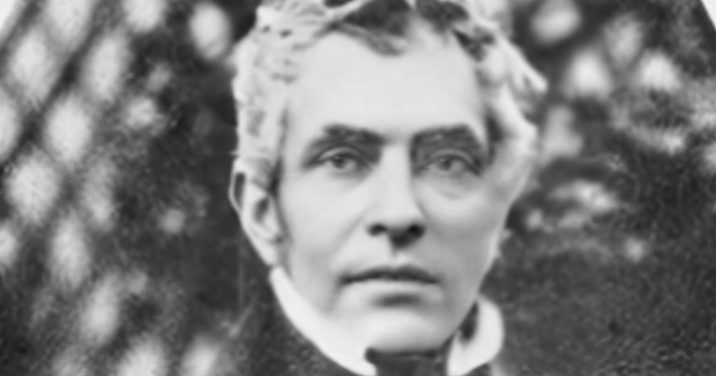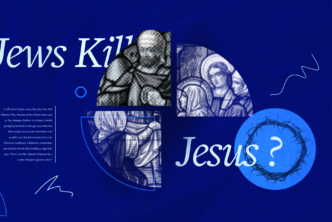Dispensationalism is a theological system for interpreting the Bible that views the history of God’s engagement with humanity as divisible into typically seven distinct periods. The system relies upon a literal hermeneutic and the recognition of Israel as distinct from the church.
Dispensationalism originated in the nineteenth century through the writings and teachings of John Darby, but its popularity spread rapidly with the introduction of the Scofield Reference Bible in the early twentieth century. The theological system is most clearly understood in contrast with its primary alternative; namely, covenantal theology, which employs an allegorical hermeneutic and is typically amillennial in its eschatology. Dispensationalism, for the most part, is known for a clearly defined premillennial view of eschatology and a rapture of the saints, either pre- or post-tribulation.
- 1. What Is Dispensationalism?
- 2. What Is the History of Dispensationalism?
- 3. What Additional Resources Are Available for Studying Dispensationalism?
1. What Is Dispensationalism?
Dispensationalism is a structured approach to interpreting Scripture that breaks down the history of God’s engagement with humanity into various periods, or dispensations. This theological system is marked by two distinctives, including the use of a grammatical-historical approach to interpretation (i.e., a literal hermeneutic) and a recognition of Israel as distinct from the church. Dispensationalism is premillennial in its eschatology and often includes a view of the rapture as either pre- or post-tribulation, thanks to the extensive writings on the topic by the movement’s founder, John Nelson Darby.
The first distinctive, a literal interpretation to Scripture, is the bedrock of dispensationalism. A literal hermeneutic means that both Old and New Testament passages are interpreted according to their plain sense, recognizing the function of poetry, metaphor, and other literary devices to convey meaning. This literary hermeneutic requires Old Testament prophecy to be interpreted as still valid for a literal people group called “Israel.” This contrasts covenantal or replacement theology that sees the church as having replaced historical Israel and has become the actual recipient of the promises in the Old Testament.
The second distinctive, that Israel is distinct from the church, sees the two people groups of God coexisting simultaneously at various points in history. Earlier classical dispensationalism viewed the church as a “parenthesis” in the history of Israel, whereas more recent “progressive dispensationalism” understands Israel and the church as both constituting the people of God. In all forms of dispensationalism, there are promises in the Old Testament yet to be fulfilled for historical Israel.
The dispensations most commonly identified in dispensationalism include the following seven (although some identify three, four, or eight dispensations):
- Innocence (Gen 1:1—3:7): Creation to the fall
- Conscience (Gen 3:8—8:22): The fall to the flood
- Human Government (Gen 9:1—11:32): The flood to Abraham
- Promise (Gen 12:1—Exod 19:25): Abraham to Sinai (the giving of the Ten Commandments)
- Law (Exod 20:1—Acts 2:4): Sinai to Pentecost
- Grace (Acts 2:4—Rev 20:3): Pentecost to the millennial kingdom
- Millennial Kingdom (Rev 20:4–6): Eternal state
2. What Is the History of Dispensationalism?
John Nelson Darby is considered the founder of dispensationalism. Although he began his career as a lawyer, he shifted focus to the ministry, first as a priest and then later as a founder of the Plymouth Brethren. Darby’s extensive writings discussed the rapture and premillennial ideas that would form the bedrock of the later system promoted by Charles Scofield in his Scofield Reference Bible. This Bible—one precursor to modern study Bibles—would all but redefine the landscape of American Christianity, especially Baptist and Presbyterian theology.
In the latter part of the twentieth century, the dispensational schema morphed as it was reconsidered by various thinkers within the system itself. The center of this thinking, soon called “progressive dispensationalism,” was located at Dallas Theological Seminary in Texas. The theological system presented by progressive dispensationalism is still flourishing in mostly conservative Baptist and Presbyterian churches in the United States, but it still offers an alternative perspective to amillennialism and replacement theology on eschatology and Israel for churches and denominations worldwide.
The history of dispensationalism can be envisioned as a three-part progression from classical to progressive:
Classical dispensationalism
- God’s purposes differ throughout history
- The church is a “parenthesis” in God’s dealings with Israel
- During the millennial period, two kingdoms will exist, one on heaven and one on earth
Modified dispensationalism
- Israel and the church are the two “peoples” of God
- They have distinct roles
- But salvation is the same for both
- During the millenium, both Israel and the church coexist
Progressive dispensationalism
- Both the church and Israel are the “people of God”
- The church is included in Old Testament promises
- Israel and the church remain distinct
- Israel remains integral to God’s plan as his chosen people
3. What Additional Resources Are Available on Dispensationalism?
Essential books and courses on dispensationalism
Dispensationalism, Israel and the Church: The Search for Definition
Regular price: $21.99
Progressive Covenantalism: Charting a Course between Dispensational and Covenantal Theologies
Regular price: $28.99
Video lecture: “John Nelson Darby and Dispensationalism, Israel, and the Church”
In this video, Cornelius Jones presents an in-depth study of Darby and dispensationalism.
Other links
“Understanding Dispensationalists“
The entire text of Vern Poythress’s book is available online at his website. This book is essential reading for understanding the theological distinctives of dispensational theology.
“Dispensational Premillennialism: The Dispensationalist Era“
This article in Christianity Today, written by Timothy Weber, tracks the rise of the dispensational position from a minor position to one of dominance in American evangelicalism.
“What Does John Piper Believe about Dispensationalism, Covenant Theology, and New Covenant Theology?“
An article by Matt Perman discussing the multifaceted approach of John Piper to dispensationalism that includes a list of helpful resources on the three theological viewpoints.







